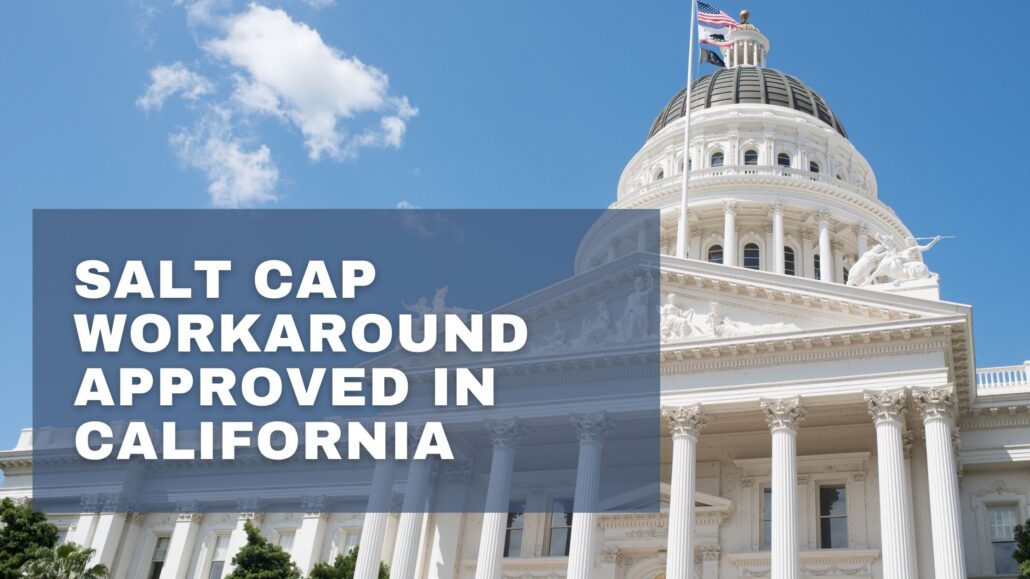
On July 16, 2021 Governor Gavin Newsom signed A.B. 150, implementing a State and Local Taxes (“SALT”) Cap workaround for the current deduction which was limited to $10,000 by the Tax Cuts and Jobs Act passed in 2017. The law was unanimously approved by the California Assembly and Senate on July 1, 2021 and enacted as a part of California’s 2021-22 budget.
California’s SALT workaround is an elective entity level tax available to qualifying pass-through entities doing business in California: S corporations (per Subchapter S, Chapter 1, Internal Revenue Code), partnerships, and limited liability companies (LLCs).
A pass-through can elect to pay a 9.3% elective tax on qualified net income on behalf of its owners, if it meets the following criteria:
- Its owners are corporations
- Its owners are individuals, fiduciaries, estates, or trusts subject to California income tax
- It is not part of a combined return or reporting group
- It is not a publicly traded partnership
Consenting owners will receive nonrefundable credits on their own income tax returns, and they can roll over excess credit into the next tax year, and the four years after that, until exhausted. This elective tax shifts some of the burden of pass-through income tax onto individual entities rather than a monolithic, no-frills cap.
For tax years beginning on or after Jan. 1, 2021, and before Jan. 1, 2026, qualified entities can make an irrevocable election annually on an original, timely filed return to pay the tax on a qualified owner’s share of net income of the qualified entity.
The elective tax can be paid in two installments. The first installment is due on June 15 of of the current tax year of the election and is the greater of $1,000 or 50% of the elective tax paid in the prior year, The second installment is due on or before the due date of the tax return without regard to any extension of time to file. As is often the case with elective taxes, it is important to meet deadlines for these payments, as it could be deemed invalid if you fail to make a payment on time or in the proper manner.
Some Thoughts on Implementation
This workaround adds some complexity to the existing SALT policy in federal and California state tax law, and it needs to be carefully considered whether firms should take this elective. The California Franchise Tax Board has not specified a way that these changes will be implemented, meaning that both advisors and taxpayers should evaluate their income to see if they can benefit from the workaround.
As with any change in the tax code, it may take time for taxpayers to adjust properly to the new rules, but every penny saved can be a penny invested in yourself or your company’s future, paving the way to financial prosperity for tax years to come.
If you have questions about this new law or want to learn how you can take advantage of this new law fill out the contact form below or give us a call 916-299-6800.
Disclaimer: The information provided on this website does not, and is not intended to constitute as legal or financial advice; instead, all information, content, and materials available on this site are for general informational purposes only. Additional facts, facts specific to your situation may affect information contained herein. Information on this website may not constitute the most up-to-date legal or other information. This website may contain links to other third-party websites. Such links are only for the convenience of the reader, user or browser; Nelson & Associates, CPA’s does not confirm the validity of the contents of the third-party sites.


